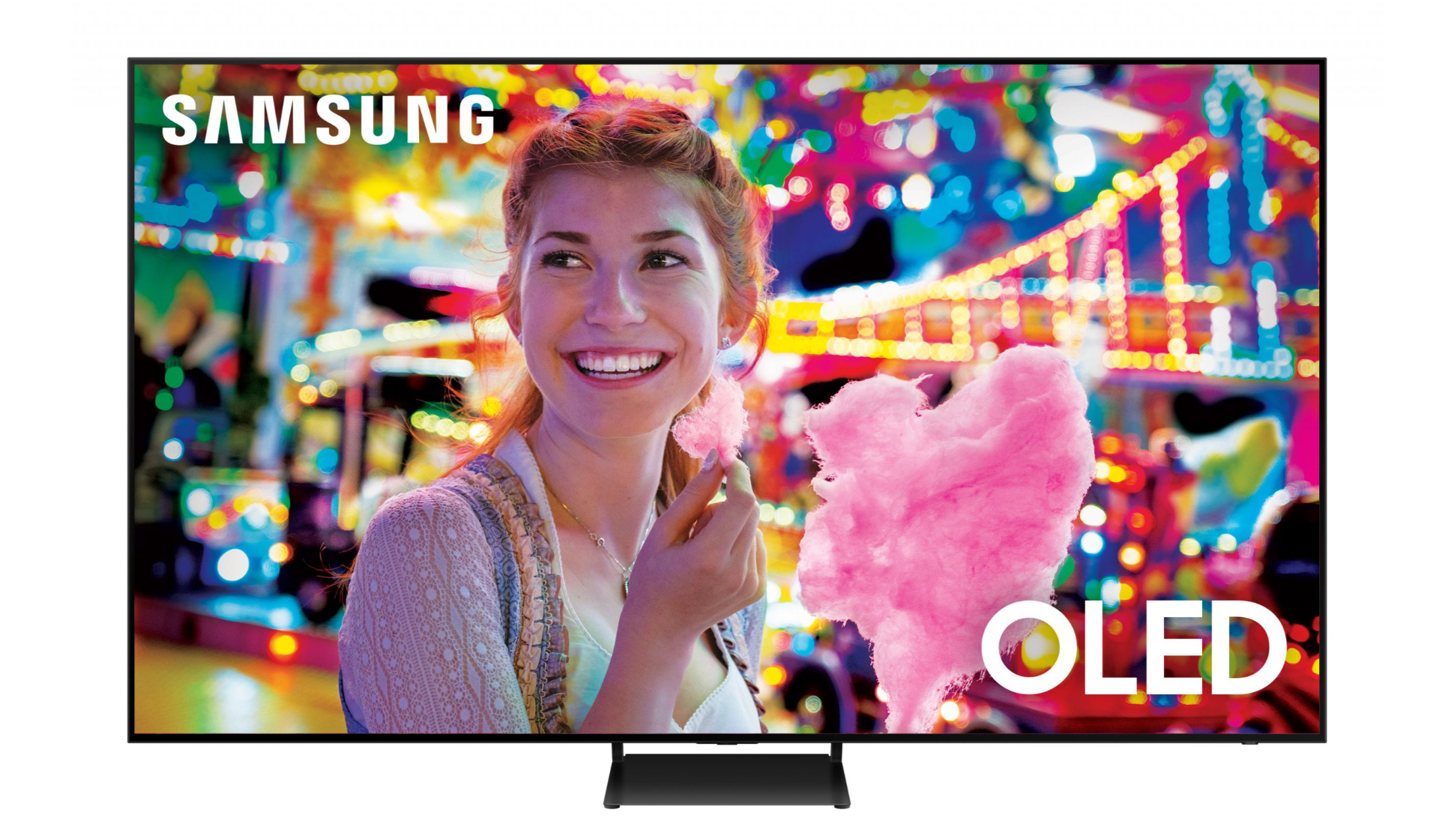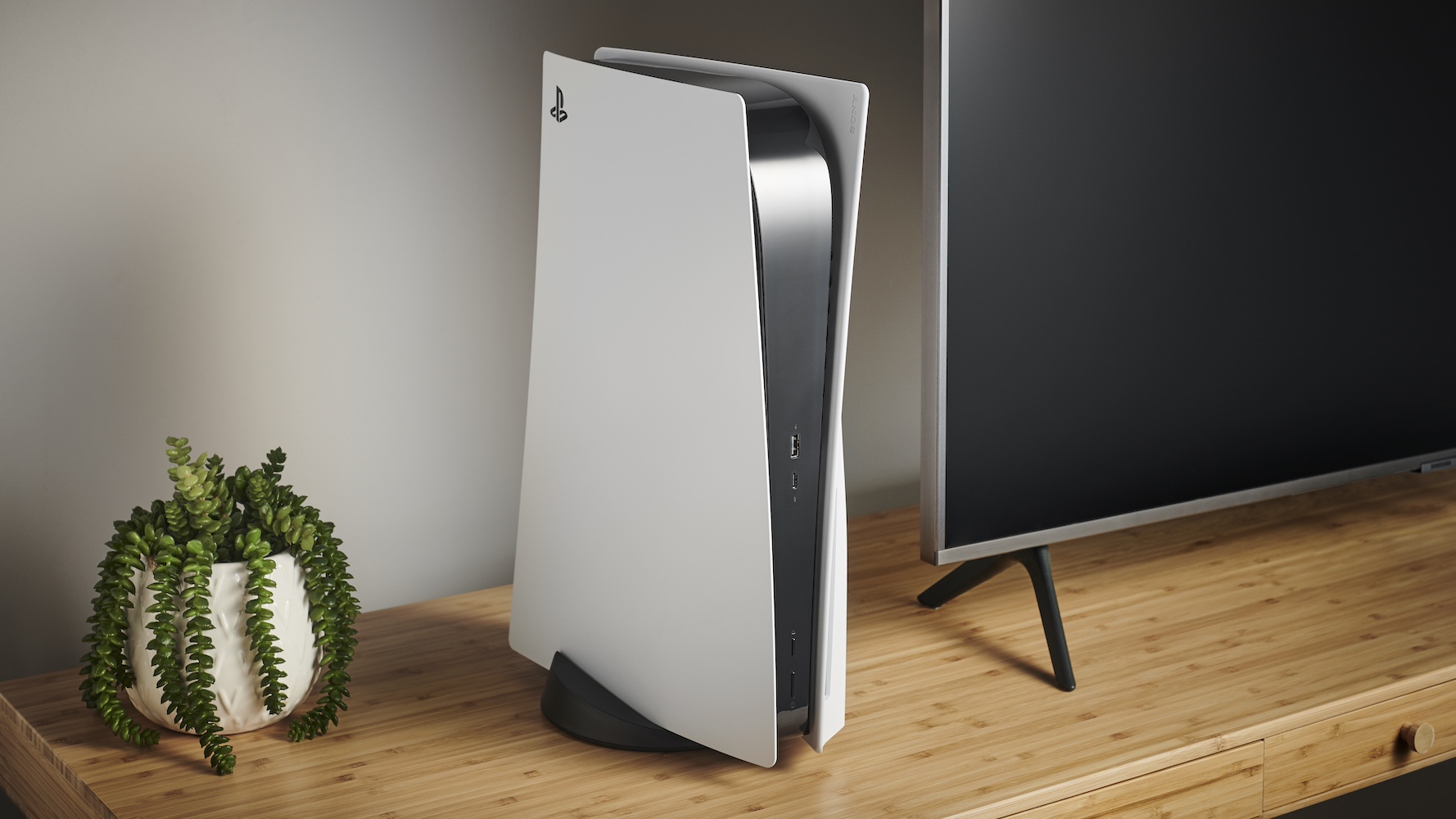Samsung has launched its biggest OLED TV yet, but there's a twist
Samsung's first WOLED TV ditches the Quantum Dots

Samsung has announced that its latest version of the S90C, its step-down QD-OLED TV that currently comes in 55-, 65- and 77-inch sizes, will now come in an 85-inch size variant – however, there's a major plot twist with this release.
While OLED has been popular for many years now, Samsung held back, and only properly jumped on the bandwagon last year with the release of the S95B. That TV used a panel developed by Samsung which combined OLED and Quantum Dots, we've covered it quite a lot here so you're probably familiar with the name QD-OLED. Since then, Samsung has launched two new models: the S95C, successor to the aforementioned debut QD-OLED model that uses a brighter second-generation panel, and the S90C, a slightly cheaper step-down model that doesn't get the latest display tech.
As we're still in the infancy stages of QD-OLED, size options have been limited, with these latest sets only now adding a 77-inch size model, however, it looks like Samsung wants to expand on this, but it's gone about it quite an interesting way.
The 83-inch Samsung S90C is not a QD-OLED, in fact, it uses a WOLED panel built by LG (technically LG Display) – AKA Samsung's biggest rival. LG uses WOLED panels in many of its TV models including the C3 OLED, C2 OLED and G2 OLED, with this year's G3 OLED stepping up to an MLA-equipped META OLED panel with enhanced brightness. We're betting that Samsung will be using the same panel found in the 83-inch C3 OLED.
Our suspicions are backed up by the price of this new TV, which is $5400 (around £4130 / AU$7900) which lines up with the LG C3 OLED's pricing in the States, as the 83-inch model costs $5300. No UK or Australian pricing and availability information has been shared quite yet, but considering the 83-inch C3 costs £6500 / AU$8995 in those respective markets, we're not expecting the cost of the 83-inch S90C to be far off.
This new variant seems to be similarly specced to the smaller S90Cs, with a 4K resolution, HDR support (HDR10+, not Dolby Vision of course) and 4K/120Hz support with ALLM and VRR through all four HDMI 2.1 connectors. It also supports Dolby Atmos and Samsung's Q Symphony system when paired with a compatible soundbar.
So it looks like Samsung is branching out and finally adopting traditional OLED tech into its mainstream televisions. Now that we've seen its biggest OLED TV, we have our fingers crossed that we see a much smaller one – perhaps Samsung's take on the 42-inch C3 OLED? Yes please.
Get the What Hi-Fi? Newsletter
The latest hi-fi, home cinema and tech news, reviews, buying advice and deals, direct to your inbox.
MORE:
Read our full Samsung S95C review
As well as our LG C3 OLED review
And check out our picks for the best Samsung TVs
Lewis Empson is a Senior Staff Writer on What Hi-Fi?. He was previously Gaming and Digital editor for Cardiff University's 'Quench Magazine', Lewis graduated in 2021 and has since worked on a selection of lifestyle magazines and regional newspapers. Outside of work, he enjoys gaming, gigs and regular cinema trips.
